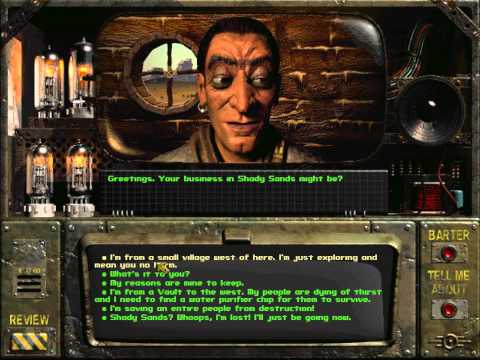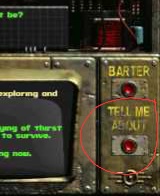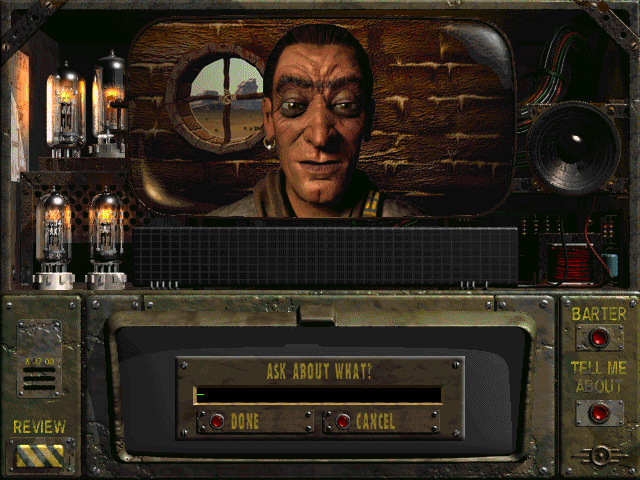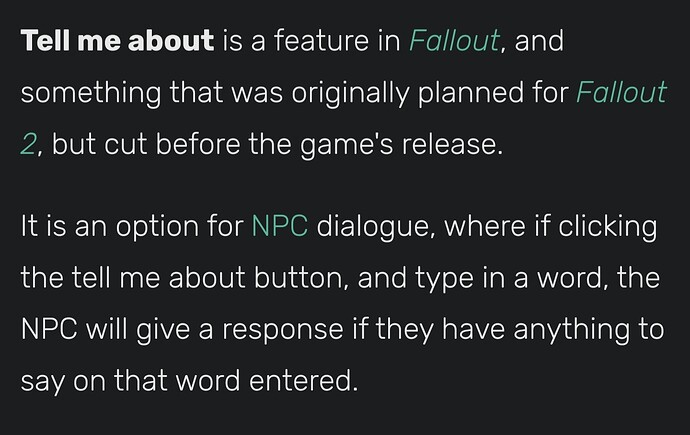I know I’m a Fallout nerd, I’m okay with it. That said, I think the original Fallout had a brilliant (if sadly underimplemented) approach for this very problem.
So, most discussions were dialogue trees, like these:

Seems pretty standard, right? Now take a closer look:

Every NPC in the game had a “Tell me about” button along with their standard dialogue tree. When you clicked on the button, you would get this:

This basically fuctioned no different than:
> Tell Ogre about Flowers
If what you tried matched up to a hidden word bank, much like a parser, you would get a scripted response.
This is from the wiki that reveals all the hidden dialogue from each NPC:
It wasn’t a widely used feature and ended up being cut, but there were some shortcomings. In the rushed development of the game, this feature was treated as an afterthought and responses found with this method rarely if ever helped advance the plot and seemed primarily for color. Nothing in the game prompts or suggests to the player to use the feature other than the mere existance of the button, so many players played through without ever using it. And that’s part of the point; it was such a separate system that one could do just that. Nothing ever brought up changed a game state or effected the NPC beyond their canned response. Nothing asked about persisted into the dialogue tree, perhaps becoming a new visible option and opening other related options with it. And finally, knowing the system needed more time and love to properly intergrate it into the game, and with an even shorter and more rushed development cycle for the sequel, the choice was made to scrap it rather than underdevelop it again.
The point I’m making is, with integrating the two options together, the dialogue tree and the ask me about, gives the best of both worlds. You have some immediate direction, personality, and leads with just the dialogue tree. But by unlocking new bits of dialogue tree (not just canned) responses, you incentivize players to engage with the NPCs they meet. Also, the word bank could be dynamic as well. You could ask them about, say, the grand ball, and they might have nothing to say to a street urchin, but somehow revealing you are a palace servant on an urgent task may change the response to that. Also, tying dialogue to changing game states is important too.
The original Fallout had the right idea, but was pulled out of the oven a bit early.



